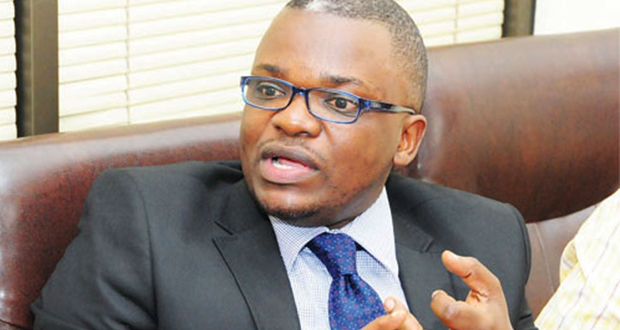By Fred Muwema
Bank of Uganda has previously claimed that the death last year of the former Governor, Prof. Mutebile, did not affect the validity or legal status of the bank notes he signed. It is now clear that BoU had no faith in its claims because on the 15th March 2023, it issued a statement indicating that there were new banknotes in circulation bearing the signature of the Deputy Governor, Mr. Micheal Atingi-Ego. What is surprising is that these new bank notes were printed in 2022, shortly after the death of the late Governor and at the time when BoU was insisting that the deceased’s signature would remain valid.
I wonder why BoU would want to fix something which was not broken in the first place. Anyway, we now have a situation where BoU realizes that there was something broken which had to be fixed, but in doing so, BoU appears to have broken the thing further, rather than fix it.
As it stands, both bank notes bearing the signature of the late Governor and that of the deputy Governor are simultaneously issued as legal tender by the BoU. Why did BoU not just announce that the old bank notes would gradually be phased out and withdrawn from circulation, since it has the power to do so? BoU has instead said that the old notes will continue to be issued in circulation alongside the new ones!
In my considered view, this development has only served to grow the legal conundrum which has surrounded our bank notes for the last one year and kept them on needless palliative care. We have suffered enough confusion with this issue already, another doze may drowse us into the wall.
In my 7th February 2022 opinion, I held the view that our bank note is a sovereign living instrument which had lost its legal tenderability upon the demise of the late Governor. This is because, the deceased Governor’s signature on the bank note did not survive his death.
Whereas my opinion was perhaps a confounding notion to many who could not summon the required level of cognitive complexity to appreciate the drift, I have not received any reason to convince Meto abandon my stance. I will therefore try to break down the problem again and use a simpler route which will hopefully assuage any remaining doubts.
It is true that the legal mandate to sign on our bank notes is the exclusive preserve of the office of the Governor and Bank Secretary. According to Article 161 of the Constitution, the office of the Governor and deputy Governor are distinct but binary public offices. The distinctiveness is exemplified by their separate instruments of appointment by the President under S. 27 (1) and S. 27 (2) of the Bank of Uganda Act Cap 51 (as amended). On the other hand, their binary nature is exemplified by the existence of 2 parts (read offices) forming one whole office.
Under Article 161 ibid, the authority of the BoU is vested in a Board which consists of the Governor as chairperson, the deputy Governor as deputy chairperson and not more than 5 other members. In other words, no Board of the BoU can function legally without a substantive chairperson, who in this case cannot be substituted by any other person other than the appointed Governor.
Since the office of the Governorship at BoU is comprised of two offices (Governor and deputy Governor), that office is legally constituted only when the Governor and deputy Governor are appointed and serving in office. We cannot have a functioning deputy Governor when there is no functioning Governor to deputize. We therefore cannot have a “deputy Governor” purporting to sign on our bank notes in the absence of a substantive Governor in office.
It may appear reasonable at first sight, to argue that the deputy Governor should be allowed to sign the bank notes in the absence of the Governor under the provisions of S. 3(2) Bank of Uganda Act. This argument fails however upon the realization that the use of noun “absence” in that section, denotes a temporary absence from office. It does not denote permanent or physical absence from office either by death or vacancy.
This is not the first time that the question of a physical absence or vacancy in a public office has arisen in Uganda. This question arose and was settled in Constitutional Reference No. 54/2011, Hon. Sam Kuteesa, Hon. John Nasasira and Hon. Mwesigwa Rukutana vs Attorney General. In that case, the trio had been charged with abuse of office and causing financial loss by the then deputy IGG, Mr. Raphael Obudra who was also acting as the IGG. The law did not provide for the appointment of an acting IGG and there was no substantive appointment of the IGG at the time.
The issue for determination before the Constitutional Court was whether the IGG can prosecute the accused when it is not duly constituted in accordance with Article 223 (2) of the Constitution and S. 3 (2) of the Inspectorate of Government Act. The unanimous decision of the Constitutional Court was that the IGG could not function and prosecute any case when it was not properly constituted in accordance with the said law.
It is with good fortune that the accused in the above case were represented by eminent learned friends in the person of the late Dr. Joseph Byamugisha (RIP), a long-serving legal advisor of the BoU. The Bank should therefore find it easy to apply the above precedent to the present situation by waiting for the proper composition of the office of the Governor before making any more errors.
It is also with good fortune that Hon. Kiryowa Kiwanuka, the current Attorney General of Uganda, was part of the team of lawyers in the said case. The appointing Authority can therefore consult with the Attorney General to resolve this issue by appointing a substantive Governor of the BoU. In my view, this matter calls for the exercise of a legal duty, rather than the exercise of a legal discretion.






